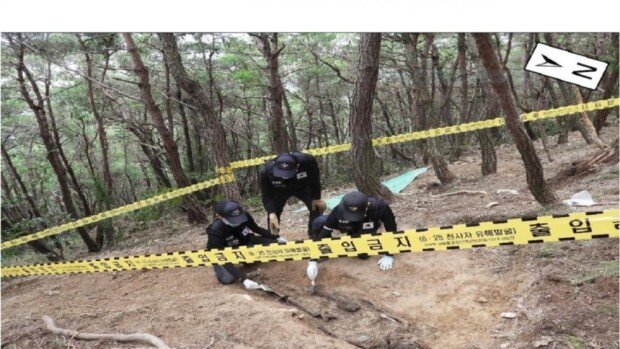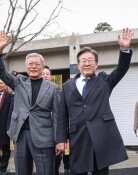13 years of human remains excavation efforts bear fruit
13 years of human remains excavation efforts bear fruit
Posted June. 24, 2023 07:52,
Updated June. 24, 2023 07:52

A soldier, who decided to leave his 10-month-old daughter behind to serve his country during the Korean War, has finally returned. In 72 years, he has returned to his daughter, now a woman in her 70s. Over the years, the MND Agency for KIA Recovery & Identification (MAKRI) under the Ministry of National Defense has tirelessly worked to excavate and identify the remains of fallen Korean soldiers. Their efforts have resulted in the recovery of 11,313 remains until last year.
On Friday, the MAKRI announced confirming the identity of remains excavated three times over 12 years (from 2010 to 2022) in Cheorwon County, Gangwon Province. The remains have been identified as Private First Class Kim Hyeon-taek. To commemorate this significant finding, the MAKRI organized a special “Return of the National Hero” event at Private First Class Kim’s daughter Deuk-rye's (73) home in Suwon, Gyeonggi Province, and presented keepsakes to her. Private First Class Kim's identification marks the 212th individual to be positively identified since the National Guard began their efforts to excavate remains in 2000.
His remains were initially discovered in 2010, approximately 60 years after his passing. The excavation process began with the recovery of his femur bones, followed by the subsequent discovery of his hip bones and additional femur bones until last year. In 2016, as part of a mobile investigation aimed at reaching out to the families of the deceased, the Kukyudan collected a genetic sample from his daughter, Deuk-rye. Through meticulous analysis and comparison of the genetic samples, it has been conclusively established that they share a father-daughter relationship. Upon receiving the news of her father's identification, Deuk-rye expressed profound relief, saying, “I feel as though I have fulfilled my life's mission by finally locating my father's remains.”
The number of Korean soldiers who lost their lives during the war amounted to 162,394. Among them, 121,879 individuals remained missing until last year, excluding those whose remains were recovered. Despite the excavation of 11,313 soldiers' remains until last year, a significant portion of them cannot be returned to their grieving families due to the lack of available genetic samples and the challenges in identification even after recovery. Military authorities have obtained 86,575 genetic samples from relatives up to the 8th degree of the deceased. However, there have been instances where multiple samples have been collected from a single individual. Therefore, there is an urgent need to prioritize the acquisition of additional samples.
Hyo-Ju Son hjson@donga.com







